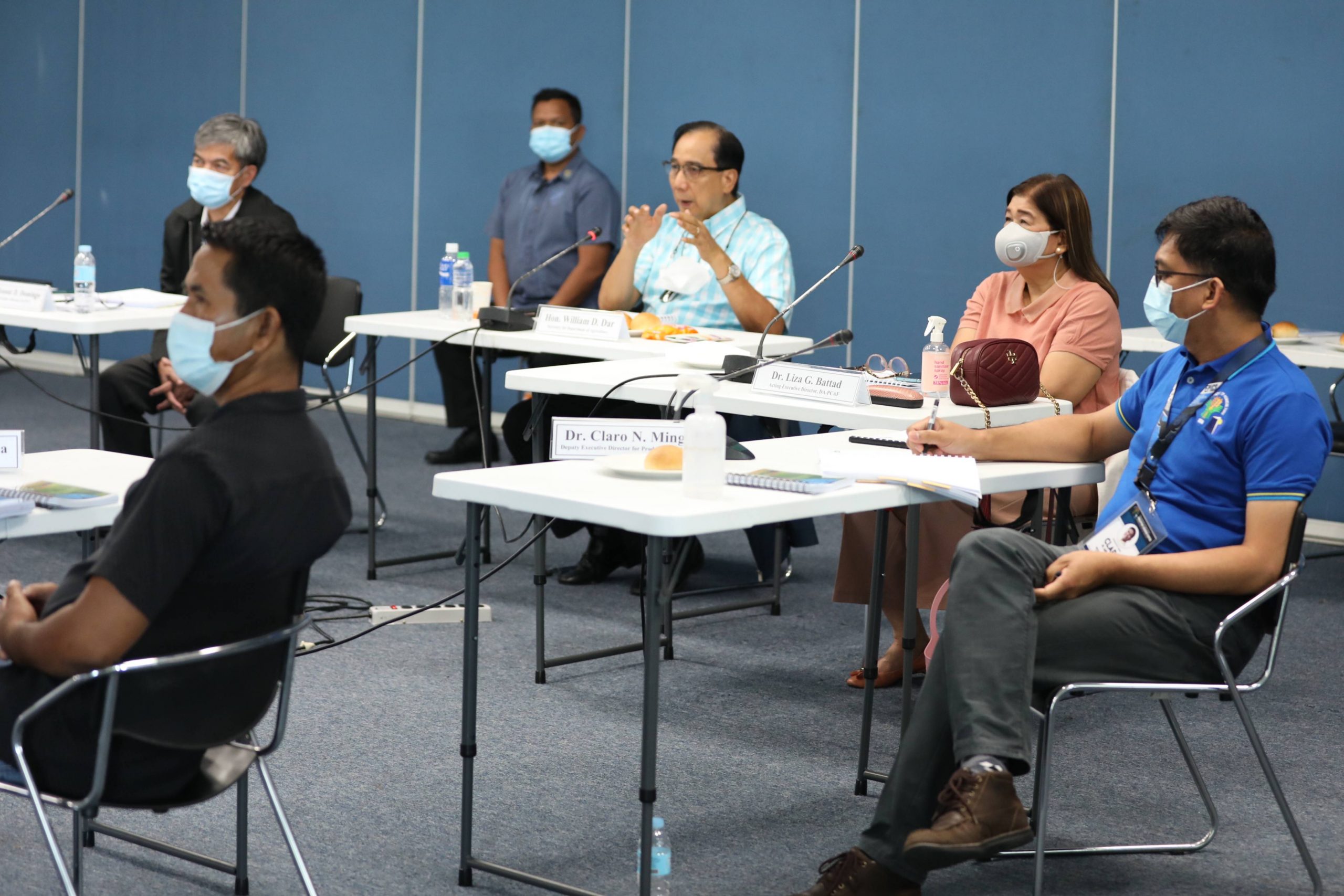
The Advisory Board of the Department of Agriculture-Philippine Carabao Center (DA-PCC) led by Secretary William Dar held its 22nd meeting on September 3, 2021 to set new directions for projects that will have big impact for the country’s carabao industry.
“I would like to challenge the leadership to think big this time around and we will look for the resources to make it possible. The demand for milk is really huge so let’s respond to that clamor. We have to really aim bigger now,” Secretary Dar said.
He added that there is a need to accelerate herd build-up for milk and meat production, modernize facilities, strengthen farm clustering, reduce cost of feeds, strengthen research for development, and continue collaborations with local government units (LGUs), among others.
“We really have to accelerate product development of carabao milk and meat. Those are the key areas with which we really have to pursue using the state-of-the-art facilities,” he said.
The Board tackled the PCC service contingency and management plan, the formulation of the Carabao Industry Roadmap for 2022–2026, the PL480 Intensified Community-Based Dairy Enterprise Development, and the Collaboration with Academic Partners for Applied Biotechnology in Livestock Enterprise (CAPABLE) 2022–2025.
“With the breeding centers that we have, we need to enlarge the breeding animals in every regional center so that we can have more exposure on the ground. Let’s see to it that we expand. That is the only way we can see a much-accelerated milk and meat production in the carabao industry,” the agri chief commented on the Roadmap.
In 2020, the Philippine Carabao industry’s output value is P13.23 billion. The industry goals of the current Roadmap include accelerating herd build-up, increasing productivity and profitability of carabao-based enterprises, ensuring availability of safe and quality milk and meat products from genetically improved carabaos, and harnessing the niche market for carabao-derived products.
Through the United States Agricultural Trade Development and Assistance Act or Public Law 480 (PL480), the PCC will have a share of P512 million from the P1.56-billion fund for intensified community-based dairy enterprise development.
Project goals include increasing annual family income by 20 percent, producing 27.7 million liters of milk, establishing 22 province-wide impact areas as dairy business hubs, increasing dairy carabao inventory, and having policy actions that are supportive to dairy business build-up.
“I like the prioritization of impact areas. The breeder base would be the regional centers and headquarters. The top provinces should be part of the industry roadmap as focus for the next five years,” the agri chief said.
He also noted that the PL480 is a good addition to the resources of PCC to enhance their work and they should focus on areas with existing institutional development, community building, and farm clustering initiatives.
In line with the “OneDA” Reform Agenda and the devolution of functions to LGUs, Secretary Dar said the role of the national agency is to sustain, empower, and capacitate the LGUs.
“The DA and the universities have to work hand in hand. Now, our platform to work together at the provincial and lower level is the Provincial Agriculture and Fisheries Extension System (PAFES). Every province is called an extension system independent with other provinces, but it unites now the municipalities underneath to work together to have a province-wide agenda, jointly planned and implemented,” he said.
He added that the LGUs will lead the implementation, while DA and the universities will support and leverage the budget so that it can cover more grounds.
After the Board meeting, Secretary Dar also inaugurated the National Livestock Cryobank at the PCC National Headquarters.
Supported by the PL480 and the Korea International Cooperation Agency, the facility was built to strengthen the capacities of the PCC to advance research for development on ex-situ cryoconservation for animal genetic conservation leading to sustainable animal production systems. ### (Gumamela Bejarin, DA-AFID)













